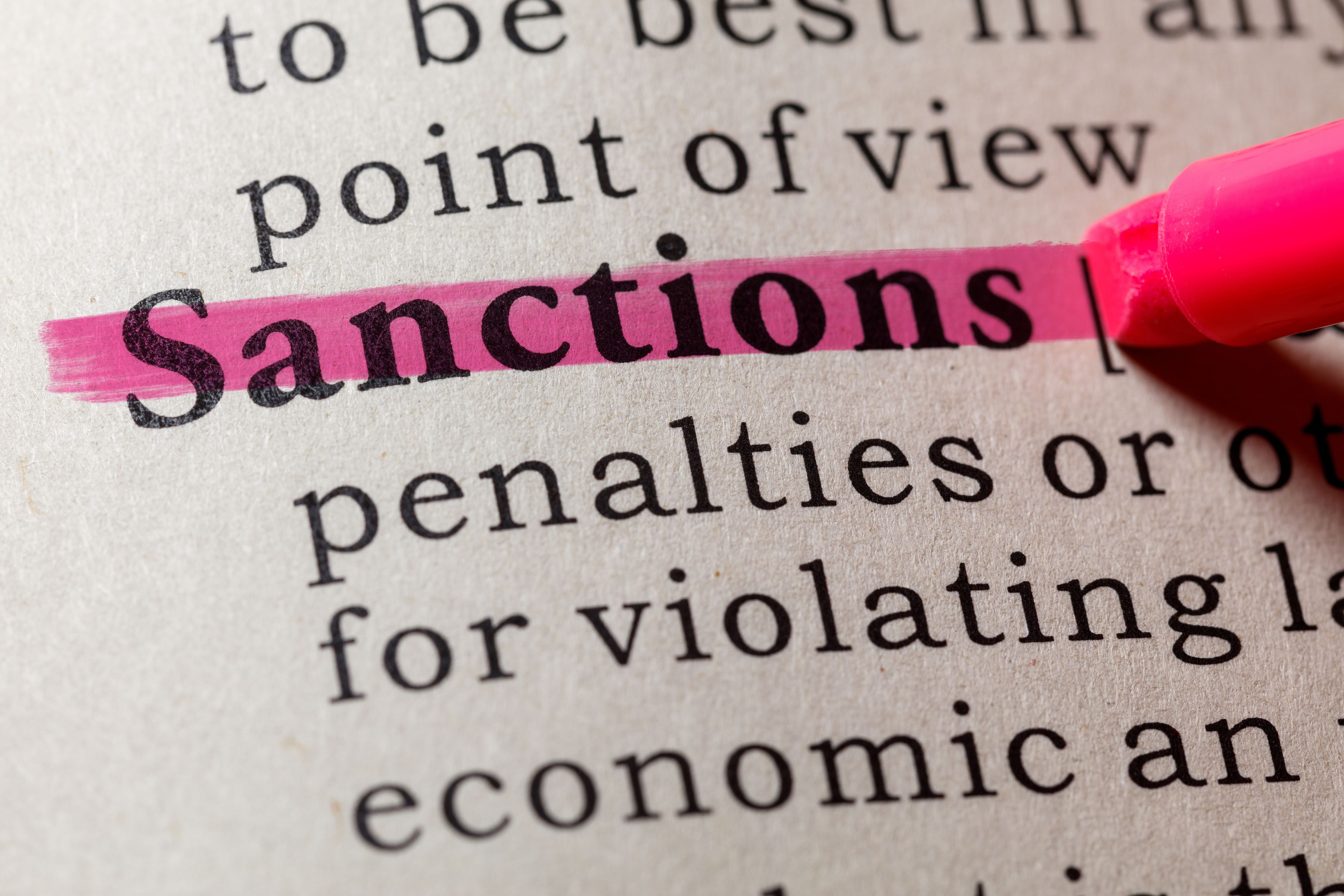
Amid increasing sanctions and changing export licensing requirements, the government has issued a reminder for traders on compliance with Russian sanctions, while the US has introduced new measures against Chinese entities in a bid to ensure the efficacy of their Russia restrictions.
LNG curbs
Politico reports that the EU has proposed sanctions on Russian liquified natural gas (LNG) for the first time.
The proposed restrictions will prevent EU countries re-exporting LNG, but not its import for domestic use. The proposal still states that “such a measure limits the expansion of Russia’s LNG capacity, and thereby limits Russia’s revenues”.
However, experts have noted that resales of Russian LNG only totaled a quarter of receipts and that additional measures clamping down on future LNG projects are preventative.
The EU has yet to place any measures on LNG given the bloc’s former dependence on it. By the end of last year, it managed to cut its consumption by two thirds, so that Russian LNG made up only 5% of total consumption. This still equates to €8bn in Russian revenue.
Since Russia’s invasion of Ukraine, the EU has placed restrictions on the country’s oil and coal exports, although without the intended impact. An attempt to limit oil revenues to US$60 per barrel was unsuccessful; oil has consistently traded above the figure. Russia has also sold to other markets and exploited loopholes to maintain export revenues.
Sanctions reminder
The government released a notice last week (1 May) reminding traders of compliance requirements in line with sanctions against Russia.
In addition to restating the current measures in place, the notice also emphasised their scope, with £20m in bilateral trade currently under sanction measures, including 94% of exports and 74% of imports.
However, in order to continue the progress, HMRC also highlighted its new Economic Deterrent Initiative. Published in February, the Deter, Disrupt and Demonstrate strategy sets out the UK’s approach to sanctions.
The government notice said that that the “key element” of its strategy would be enforcement.
Asked what this means for traders, IOE&IT’s trade and customs specialist, Samantha Hodgkins, suggested that businesses ensure they have the basics in order to avoid committing a violation and receiving a fine:
“It comes down to businesses doing their correct due diligence”.
“They should know their customer and be doing their customer checks anyway – especially on new customers.”
In particular, Hodgkins urged traders to be cautious when dealing with dual-use goods, and if prospective customers ask for a last-minute change of shipping destination.
Fertiliser fail
Amid Europe’s success at reducing its dependence on Russian natural gas since Russia’s invasion of Ukraine, the FT reports a warning that imports of fertiliser could be bolstering the country’s economy.
The chief executive of one of the world’s largest nitrogen-based fertiliser producers, Svein Tore Holsether of Yara International, told the publication that he believed Russia was supplementing exports of otherwise banned natural gas with nitrogen fertiliser, which counts gas as a key ingredient.
Holsether said it’s “a paradox that the aim is to reduce Europe’s dependency on Russia, and then now we are sleepwalking into handing over critical food and fertilising power to Russia”.
Not only is natural gas slipping through the next in other forms, but other Russian fertiliser imports, such as urea, have also increased, doubling between June 2022 and 2023.
Despite Russian complaints over falling trade as a result of Western sanctions, Russian receipts are estimated to have risen 70% in 2022 due to the price surge in fertilisers following its invasion.
US-China
As tech and critical mineral export controls mark increased trade tensions with China, the US has now sanctioned the Asian nation over its support for Russia’s invasion of Ukraine.
The US has placed measures on 280 entities which it claims have allowed Russia to “acquire desperately needed technology and equipment from abroad”.
Treasury secretary Janet Yellen said that the companies have been warned they would “face significant consequences for providing material support for Russia’s war and the US is imposing them today on almost 300 targets”.
These include Finder Technology, which the US alleges exported 293 consignments of electronics and drone components to Russia, and Juhang Aviation Technology, which is accused of exporting military technology, including drone components, according to the Independent’s report.
Ahead of state secretary Antony Blinken’s trip to Beijing last week, a senior state department official told CNN that measures were designed to curtail the threat Russia poses to the rest of Europe, suggesting “Russia is no longer kind of on its back foot. They have substantial assets”.
They added that China’s contribution to Russia must be limited.
“It is absolutely critical that the support that it’s providing – not in terms of weapons but components for the defence industrial base – where it is overwhelmingly the number-one supplier to Russia.”
Middle East
The UK, US and Canada have imposed sanctions on Iran following the country’s drone strike against Israel (13 April).
The UK imposed measures on an additional two individuals and four companies, after initially setting sanctions the week after the attack (18 April). All are involved in Iranian drone production.
Plans to expand trade sanctions to limit the export of technology and components that could support drone production have also been announced.
This coincides with news that Turkey will suspend its US$7bn in bilateral trade with Israel until it declares a ceasefire with Hamas to allow humanitarian aid into Gaza.

